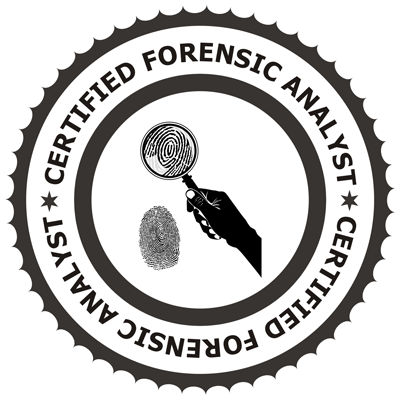Certified Forensic Analyst (CFA)
Exam Code: CFA-001

The Certified Forensic Analyst (CFA)™ certification is designed to equip professionals with in-depth knowledge and practical skills in forensic analysis, investigation techniques, and evidence evaluation. This certification focuses on identifying, collecting, analyzing, and presenting forensic evidence in a structured and legally defensible manner, supporting investigations related to fraud, cybercrime, financial misconduct, and other criminal or civil matters.
The CFA program covers key domains such as forensic accounting principles, digital forensics, data analysis, risk assessment, legal and regulatory frameworks, and investigative methodologies. Learners gain exposure to real-world case scenarios, analytical tools, and reporting techniques that enable them to uncover anomalies, reconstruct events, and present findings clearly to stakeholders, law enforcement, or judicial authorities.
This certification is ideal for forensic professionals, auditors, accountants, compliance officers, risk managers, legal professionals, and investigators seeking to enhance their forensic expertise. By earning the CFA certification, candidates demonstrate their ability to conduct thorough forensic investigations, support litigation and compliance requirements, and contribute effectively to fraud prevention and risk mitigation efforts within organizations.
The Life of a Computer Forensic Analyst
The career of computer forensic analyst comes with many titles such as, digital forensic examiner, forensic computer examiner, forensic computer analyst and computer forensic detective. Regardless of title, these professionals are in charge of the proper handling of all digital media involved in criminal cases. Another option for a career as a computer forensic analyst is within the business sector and involves finance management, economics and market analysis.
Day-to-Day Job Duties of a Computer Forensic Analyst
The job duties of a computer forensic analyst will vary, depending on the area chosen to work in. Most often, a computer forensic analyst will find their job requirements to include recovering deleted emails, recovering data that has been deleted or encrypted, and uncovering passwords. The data that is recovered through these techniques will then be used by law enforcement officials to help with ongoing investigations. Depending on the type of evidence that is recovered, the data may also be used as evidence in court.
Career Opportunities
There are a number of options available for computer forensic analysts. Large companies employ many computer forensic analysts in order to keep their computer files secure. Law enforcement jobs for computer forensic analysts involve working directly with police officers and detectives to help solve cyber crimes. Many people choose to work as a consultant and bill different agencies for the time spent on each specific problem they are employed to solve.
Salary Outlook
Salaries vary greatly based on position. The average salary for a computer forensic professional is $36,640 per year, according to the United States Bureau of Statistics. Those working in the private sector tend to earn a higher salary than those individuals working in the public sector. Although those choosing to work in the public sector usually find a set pay scale along with excellent benefits.
The work of a computer forensic analyst used to be done by police officers. However, with the increased use of technology there has become need for people specifically trained in the area of computer forensics.




